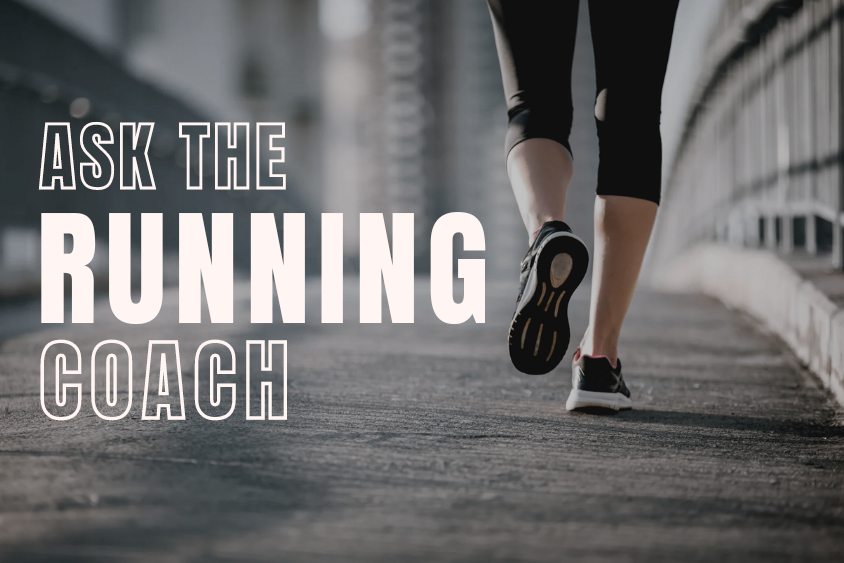
Introducing our new series where our Certified Run Coach, Josh Janicek, addresses your burning questions! If you've ever had a question you've been dying to ask, now's your chance. Submit your queries through our Google form [here] for consideration. While we aim to make this series fun, our goal is to provide you with valuable insights. Please note that not all questions may be answered, and for medical advice, consult your healthcare professional, not from ACTIVE or Josh.
About Our Running Coach: Josh Janicek is a Road Runners Club of America Certified Run Coach based out of Austin, TX. He is a 7-time Boston Marathon qualifier, founder of an Austin-based run club and training group, and actively coaches athletes ranging from those who are new to running to competitive marathoners.
Why Trust Us?
ACTIVE.com's editorial team relies on the knowledge and experience of fitness and wellness experts including competitive athletes, coaches, physical therapists, nutritionists, and certified trainers. This helps us ensure the products we feature are of the highest standard. Collectively, the team has spent countless hours researching equipment, gear, and recovery tools in order to create the most accurate, authentic content for our readers. Customer satisfaction is also a key part of our review process, which is why we only feature products that are highly rated.
Let's dive in and get those questions answered!
Question #1: What is the best shoes to by for a half marathon?
Coach Josh: The absolute best shoe for a half marathon is the shoe that fits your foot most comfortably and feels like it was made specifically for you. Your feet and physical structure are unique to you and therefore, the shoe that fits, feels great, and works for me might not fit and feel the same for you. My recommendation would be to visit your local run speciality store to get your feet properly measured and tell the store associate or manager that you’re training for a half marathon. Let them know the date of your race, your current fitness level, running and racing history, daily and weekly mileage, what the remainder of your training plan consists of including base mileage, long runs, and any run workouts, and what your projected finish time is for the half marathon. And then have them let you try on different shoes based on their recommendations until you find the pair that works for you.
Shoes are a very important and key investment for a runner and, as such, you should invest the time to find the shoe that works best for you and will help you in achieving your running goals.
Question #2: Is Zone 2 running beneficial?
Coach Josh: In short, yes. Zone 2 is a heart rate zone during exercise that is considered moderate. A heart rate zone is defined by the number of times your heart beats per minute (BPM). Without getting into the weeds about how heart rates and the zones thereof differ for everyone, we’ll stay focused on Zone 2, which I refer to as “easy, conversational running pace.” This means that you should be running at a sustainable pace that allows you to carry on a conversation with your running buddy without panting and gasping for air. Athletes that I work with will run between 80-90% of their weekly mileage during a training cycle at this easy, conversational pace. Note that I did not say “80-90% of their weekly mileage at Zone 2 pace.” While the latest sports watches with heart rate monitors and heart rate chest straps are accessible, convenient, and great, I’m a staunch advocate of running by feel and less by technology. You should practice listening to and understanding your body while you’re running so you can learn what Zone 2 feels like.
The benefits of Zone 2 running are many. Zone 2 running is key in building your cardiovascular base fitness and, as a runner, there’s no such thing as too much cardiovascular base fitness. Zone 2 running is also known to increase bone, muscle, and mitochondrial density, as well as increase capillary beds which help in transporting blood, oxygen, fuel, and nutrients to muscles. Zone 2 running is also less intensive, which is helpful in preventing injuries, fatigue, overuse, and burnout.
Question #3: I walk 10 miles daily for my job, can I consider this part of my marathon training?
Coach Josh: I would consider walking 10 miles daily a lot of miles, and supplemental to a marathon training plan. Depending on what your goals are for the marathon, you’ll want to take into account specificity in your training. If you’re planning to walk the marathon and you’re walking 50 miles per week currently, I’d venture to say that you’re adequately prepared. If you’ll be running the marathon I would recommend working with a certified run coach to help you with a periodized marathon training plan that will allow you to safely increase your running mileage and intensity over time while factoring in the miles you put in from walking for your job. Without knowing the details of your training and marathon plans, a coach might recommend focusing on 2-3 key runs per week. He or she may recommend scaling back or omitting the short and easy weekly base mileage runs (sometimes called “junk miles”) between effort runs, such as speed workouts or hill repeats and your long run.
I would also highly recommend consulting with your doctor to make sure that it’s okay to increase the volume and intensity of your mileage, and remain healthy and uninjured during your training cycle.
It sounds like you lead an active lifestyle, and that bodes well for a marathon training plan so long as you are able to strike a healthy and sustainable balance. Early in my coaching days I heard a phrase that has stuck with me: No run matters. As runners we can often get caught up in being meticulous about sticking to our training plan. If we miss a day of prescribed running or if a workout doesn’t go as planned, many have a tendency to try to make up for any missed runs or workouts. I frequently remind athletes and myself to consider your daily life as part of your training. Our daily lives can get hectic, overextended, and difficult to manage, physically and emotionally. I always say that running imitates life. You’re going to have highs and lows in the marathon, and life helps you prepare for that.
I’m reminded of a great quote in a New York Times article written by author and competitive ultra runner, Katie Arnold:
My strategy for Leadville was simple, if unconventional: Everything counted. Walking with my daughters, Pippa and Maisy, to school, riding my bike to the grocery store, taking the dog out after dinner. Afternoons spent on the lacrosse field, coaching the girls’ team in our Santa Fe community league? Yup, training.My secret to endurance was no secret at all, but a basic, if underrated, human impulse: staying in motion.
In short, as long as you’re able to stay healthy, happy, and the training leading up to your marathon is sustainable, then yes, your 10 miles of daily walking for your job can be a good way to supplement your marathon training.
Submit your queries through our Google form [here] for consideration.
Check Out The Latest Nike Running Shoe Deals on Amazon
By clicking on the product links in this article, we may receive a commission fee at no cost to you, the reader. Sponsorships and affiliate commissions help support our research so we can help you find the best products. Read full affiliate disclosure here.


